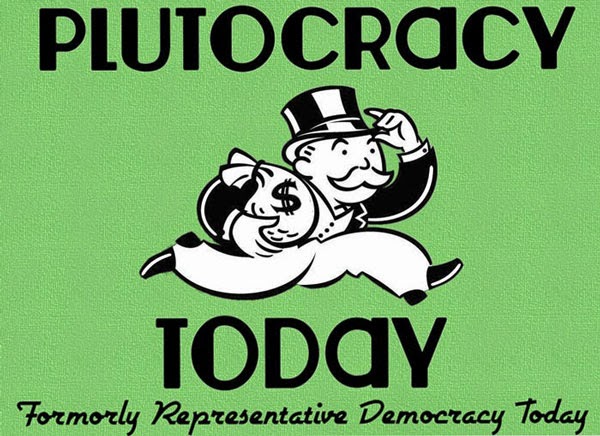

A plutocracy-that is, rule by the wealthy and their surrogates-is emerging as large public and private entities exercise increasing power through both the law and the market. This unraveling is happening before our eyes.

They knew if the people degenerate into an insolent plutocracy on the one hand and a disgruntled, insecure, proletarianized mass on the other, the American experiment in self-government would become increasingly fragile and

Our founders imagined strong communities, strong families, and independent citizens capable of self-government. Our constitutional order assumes a populace of property owners, a middle class whose virtues provide the necessary ballast to support our republic. Ultimately, the Founders understood something that we, too, must grasp: property and power are inseparable. The virtues of self-control, independence, generosity, thrift, and neighborliness are fostered, at least in part, by a culture of private property.

These two ideals are related, for the ownership of property calls forth certain virtues that make self-government possible. The second condition is a vibrant middle class characterized by the ownership of private property. First, Madison admitted that “a dependence of the people is, no doubt, the primary control on the government.” By this he meant that virtuous and vigilant citizens are the best means of checking the expansion of power. In fact, it is likely that they will fail if two other conditions do not exist. However, these sorts of institutional checks are no guarantee. The federal structure of our government is also intended to provide the same insurance: the states are tasked with checking the expansion of the national government. Constitution delegates specific powers to the three branches with the hope that those branches will jealously guard their power against the inevitable encroachments of the others. Institutional structures can provide some measure of protection. Human communities require it but must at the same time constantly guard against power’s natural tendency to unify and grow. If it is absolutely unified, politics will die. If power is absolutely diffuse, political institutions cannot function. That having been said, any adequate conception of politics requires sufficient power to make collective action possible. When power is sufficiently consolidated, the practical consequence is tyranny. Of course, the underlying assumption is clear: consolidated power is dangerous and undesirable. James Madison, writing in The Federalist Papers, put the matter succinctly: “power is of an encroaching nature.” In light of this fact, he set out to describe the principle of separation of powers built into the United States Constitution. Political thinkers have long understood this axiom of power. If you lose sight of that fact, everything else will go out of focus. It is the crisis of the middle class, and not simply the growing chasm between wealth and poverty, that needs to be emphasized in a sober analysis of our prospects.Īnyone who studies politics must keep one vital principle in mind: power tends to expand and consolidate. If this excerpt whets your appetite, do order a copy of Plutocratic Socialism: The Future of Private Property and the Fate of the Middle Class. Mark Mitchell’s book is the latest title published under the FPR Books imprint.


 0 kommentar(er)
0 kommentar(er)
